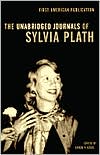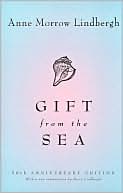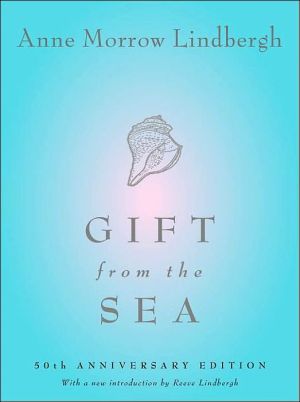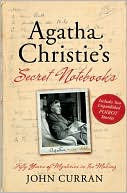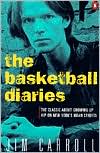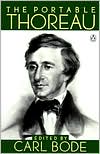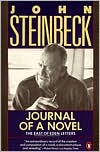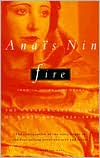The Unabridged Journals of Sylvia Plath
First U.S. Publication\ A major literary event--the complete, uncensored journals of Sylvia Plath, published in their entirety for the first time.\ Sylvia Plath's journals were originally published in 1982 in a heavily abridged version authorized by Plath's husband, Ted Hughes. This new edition is an exact and complete transcription of the diaries Plath kept during the last twelve years of her life. Sixty percent of the book is material that has never before been made public, more fully...
Search in google:
First U.S. PublicationA major literary event—the complete, uncensored journals of Sylvia Plath, published in their entirety for the first time.Sylvia Plath's journals were originally published in 1982 in a heavily abridged version authorized by Plath's husband, Ted Hughes. This new edition is an exact and complete transcription of the diaries Plath kept during the last twelve years of her life. Sixty percent of the book is material that has never before been made public, more fully revealing the intensity of the poet's personal and literary struggles, and providing fresh insight into both her frequent desperation and the bravery with which she faced down her demons. The complete Journals of Sylvia Plath is essential reading for all who have been moved and fascinated by Plath's life and work. Publishers Weekly This book constitutes a literary event. Over 400 pages of never-before-published personal writings make this first comprehensive volume of Plath's journals and notes from 1950 to 1962 indispensable reading for both scholars and general readers interested in the poet. Plath's journals were previously published in 1982 and heavily censored by her husband, poet Ted Hughes. But even the diary entries that have been available to the public demand re-reading in the context of fresh materials. In the newly revealed writings, we see an even more complex, despairing psyche struggling to create in the face of powerful demons. Plath's intense bitterness towards her mother emerges in full force, particularly in her notes on her psychoanalysis by Ruth Beuscher in Boston from 1957 to 1959. Plath's writing is by turns raw, obsessive, brilliant and ironic. Her sensitivity about rejections from magazines, her struggle to establish a daily routine of reading and learning, and her ongoing attempts to ward off depression provide reminders of her drive and ambition, despite her feelings of inferiority with respect to her husband. This work constitutes an invaluable primary source as well as a thoroughly engrossing narrative whose omissions are sometimes as important as its inclusions. (There is, for example, surprisingly little on Plath's sudden marriage to Hughes.) Strong print media attention focusing on new revelations will drive early sales of this important work, and it should become a staple backlist title. Editor Kukil is assistant curator of rare books at Smith College, where Plath was an undergraduate and later a lecturer. (Oct.) Copyright 2000 Cahners Business Information.
List of IllustrationsviiPrefaceixPublisher's NotexiThe Journals of Sylvia PlathJournal July 1950 - July 19533Wellesley, Massachusetts8Smith College, Northampton, Massachusetts (first year)23Wellesley & Swampscott, Massachusetts (summer 1951)62Smith College, Northampton, Massachusetts (sophomore)97Wellesley & Cape Cod, Massachusetts (summer 1952)108Smith College, Northampton, Massachusetts (junior)149Wellesley, Massachusetts (summer 1953)185Journal 22 November 1955 - 18 April 1956189Newnham College, Cambridge, England191Journal 15 July 1956237Benidorm, Spain (honeymoon)239Journal 22 July 1956 - 26 August 1956245Benidorm, Spain247'Sketchbook of a Spanish Summer'261Journal 3 January 1957 - 11 March 1957265Cambridge, England267'Fish and Chip Shop'276Journal 15 July 1957 - 21 August 1957281Cape Cod, Massachusetts283Journal 28 August 1957 - 14 October 1958299Northampton, Massachusetts301Boston, Massachusetts417Journal 12 December 1958 - 15 November 1959427Boston, Massachusetts (therapy notes)429Yaddo, Saratoga Springs, New York501Appendices1Journal Fragment 17-19 October 1951, Smith College, Northampton, Massachusetts5332Back to School Commandments5383Journal Fragments 24 March 1953 - 9 Arpril 19535394Journal Fragment 19 June 1953, Mademoiselle, New York, New York5415Letter June - July 1953, Wellesley, Massachusetts5436Journal Fragment 31 December 1955 - 1 January 1956, Nice, France (winter vacation)5477Journal 26 March 1956 - 5 April 1956, Paris, France (spring vacation)5528Journal Fragment 1 April 19565699Journal Fragment 16 April 195657010Journal 26 June 1956 - 6 March 1961571'The Inmate', London, England, 196159911Journal June 1957 - June 196060912Letter 1 October 195761813Journal Fragment 5 November 195762214Hospital Notes62415Journal 1962, North Tawton, Devonshire, England630Notes675Acknowledgments705Index707
\ From Barnes & NobleOur Review\ The Silent Woman, in Her Own Words\ Sylvia Plath is a shoo-in for anybody's shortlist of the most talented poets of the 20th century. Her 1966 collection, Ariel, continues to stun new generations of readers -- and her prose work, as the seminal semiautobiographical novel The Bell Jar demonstrates, is hardly far behind. Now The Unabridged Journals of Sylvia Plath reveals her as a genius even in the off-hours; these pages throb with her fierce, pounding intensity, her uniquely incantatory cadences, and the searing flashes of brilliance from her uncannily insightful inner eye. \ Plath's journals have been published before, but in a heavily abridged and problematic form. The 1982 Dial Press edition, directly authorized by Ted Hughes, Plath's husband, contains only 40 percent of the material collected here; its entries are interpolated with disturbingly reductive psychoanalytic explanatory assertions and, perhaps most troubling, riddled with the marks of perplexing and at times suspect omissions. These redactions and additions tamper with the intrinsic logic and integrity of Plath's writing, and together they exacerbate the iconization of Plath as a mysterious but misguided genius. Fortunately, these textual faults are eliminated in the new book. Editor Karen Kukil, an assistant curator of rare books at Smith College, where the journals are housed, has remained faithful to Plath's original words even to the extent of reproducing spelling errors and has all but limited her editorial comments to her meticulous notes. The frequent omissions within entries have been filled in, and whole regions of previously unpublished material -- including two manuscript notebooks written between 1957 and 1959 (which were only unsealed by Hughes shortly before his death in 1998) -- dramatically open up Plath's intimate world.\ Plath is brutally honest in these pages. Interspersed with joyful descriptions of landscapes, friends, and even foods, entry after entry is an unshrinking act of the excoriation and exorcism of her perceived defects both as a person and as a writer. In a sense, this restored record is the central authorial act of her life; it is a kind of home base where Plath dreams up new projects, drums up the energy to undertake them, and exactingly judges her past achievements. Yet although this book will be compulsively appealing to Plath's readers, it will also be vitally compelling to anyone interested in the human soul and its predicaments. It is a rare, crystalline document of the struggle of a great and unflinching spirit.\ \ \ \ \ \ Publishers Weekly - Publisher's Weekly\ This book constitutes a literary event. Over 400 pages of never-before-published personal writings make this first comprehensive volume of Plath's journals and notes from 1950 to 1962 indispensable reading for both scholars and general readers interested in the poet. Plath's journals were previously published in 1982 and heavily censored by her husband, poet Ted Hughes. But even the diary entries that have been available to the public demand re-reading in the context of fresh materials. In the newly revealed writings, we see an even more complex, despairing psyche struggling to create in the face of powerful demons. Plath's intense bitterness towards her mother emerges in full force, particularly in her notes on her psychoanalysis by Ruth Beuscher in Boston from 1957 to 1959. Plath's writing is by turns raw, obsessive, brilliant and ironic. Her sensitivity about rejections from magazines, her struggle to establish a daily routine of reading and learning, and her ongoing attempts to ward off depression provide reminders of her drive and ambition, despite her feelings of inferiority with respect to her husband. This work constitutes an invaluable primary source as well as a thoroughly engrossing narrative whose omissions are sometimes as important as its inclusions. (There is, for example, surprisingly little on Plath's sudden marriage to Hughes.) Strong print media attention focusing on new revelations will drive early sales of this important work, and it should become a staple backlist title. Editor Kukil is assistant curator of rare books at Smith College, where Plath was an undergraduate and later a lecturer. (Oct.) Copyright 2000 Cahners Business Information.\ \ \ Library JournalPlath's admirers should prepare themselves for another dose of her bitter medicine: Anchor Books has announced the U.S. publication of her "complete, uncensored journals." (This unabridged edition appeared first in England.) Judiciously and unobtrusively edited by curator Kukil, who oversees the Plath Collection at Smith College, the text includes the portions suppressed by Plath's husband, the poet Ted Hughes, now deceased, when he authorized an earlier American edition. About two-thirds of the writings, which cover the last years of Plath's fevered life, have not been available to the public previously. All of the difficulties and contradictions that made Plath a literary icon are contained in these intense, confessional revelations, including her anger, egotism, frustrations, self-destructiveness, and passionate need to express herself. Certain to generate dozens of new academic papers, this is essential for anyone engaged in Plath studies.--Carol A. McAllister, Coll. of William & Mary Lib., Williamsburg, VA Copyright 2000 Cahners Business Information.\\\ \ \ \ \ EconomistTo read the deepest dreams and impulses of Sylvia Plath is to fall in love all over again, totally and uncritically.\ \ \ \ \ MosesThe publication of these journals is a watershed event. They allow us, for the first time, to see this dazzlingly, maddeningly fragmented woman as an integrated being...Perhaps the most exciting aspect of a close reading of Plath's journals is the thrill of watching the laboratory of her mind at work, watching her coax her raw materials toward their concentrated final form...Her ars poetica, not just brilliantly executed but brilliantly won despite unbelievable odds, leaps into focus in even more astonishing detail than ever before.\ —Salon\ \ \ \ \ Michiko KakutaniThe publication of Plath's unabridged journals provides us with a fuller, more nuanced portrait of her: this "litany of dreams, directives and imperatives," as she once described her diary, gives us a depressed, self-dramatizing woman, but it also gives us the popular, golden coed familiar to readers from her letters to her mother ("Letters Home").\ —New York Times\ \ \ \ \ Kirkus ReviewsCourageous, honest, painful, yearning, and occasionally even funny, the unexpurgated diaries and journals of poet and novelist Plath show a woman struggling to develop her talent against the social constraints of her day.\ \
